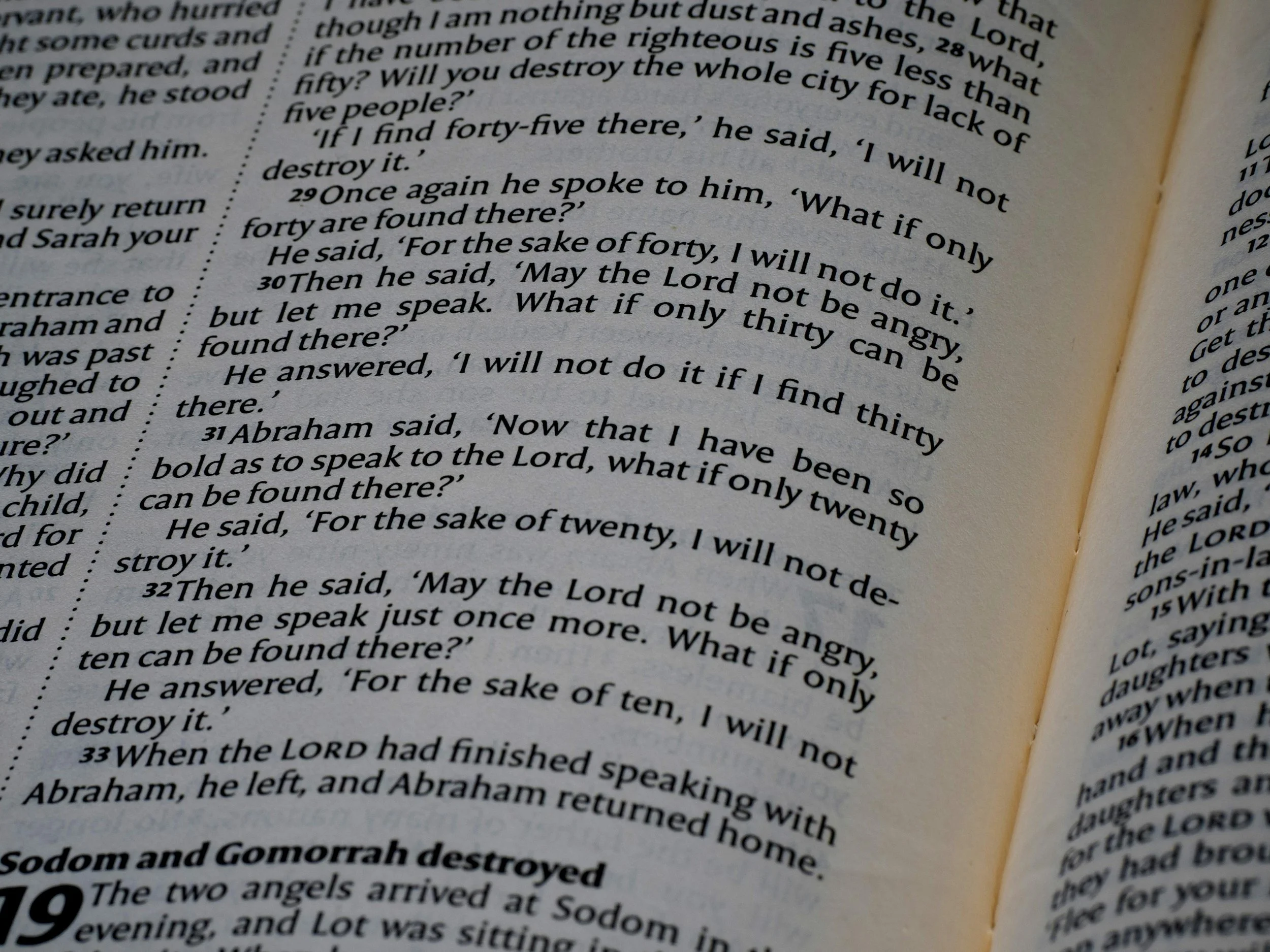Abraham as a meeting point for faith traditions
Photograph by Brett Jordan via Pexels
Rev. Dr. Michael Woolf
Abraham is simultaneously one of the most over and under-rated people in Scripture. It seems a stretch to imagine that he is underrated, given that he is credited with the theological revolution that brought us monotheism and revered by Judaism, Christianity, and Islam. And yet, when one actually reads the stories of his life and his legacy – in the Hebrew Bible, the Midrash, the Qur’an, and the New Testament – we encounter an imperfect human being. However, his journey is all the richer because of those imperfections.
Participants in interfaith gatherings often look for points of connection, and Abraham amply serves that purpose. We can think of him as the common ancestor of Judaism, Christianity, and Islam – the aptly called Abrahamic traditions. In a very real sense, Abraham’s story constitutes family history for us. He offers interfaith work a common lexicon. The metaphor I am most drawn to is that Abraham is a meeting place, a common ground on which we can spend time getting to know one another’s traditions.
Even after all these years, Abraham has something to teach us about what faith is. Protestants can be drawn to ideas that present faith as mostly being mental assent to a set of ideas: “I believe this; I don’t believe this.” But Abraham presents a radically different framework for what faith could mean, and the authors of the New Testament picked up on his fundamental contribution.
In Hebrews 11:8, we learn that Abraham is praised for his trust: “By faith Abraham obeyed when he was called to set out for a place that he was to receive as an inheritance, and he set out, not knowing where he was going.” This is truly the core of faith, and despite all the fanfare about inventing monotheism, what I take to be Abraham’s core influence. Faith, no matter which tradition one belongs to, is fundamentally about trust.
Abraham’s story offers interfaith work a common lexicon. The power to do that work starts in Abraham and in his radical trust that God would take care of him. If we can only trust in that same way, we can change the world.
It takes a lot to trust that things will be OK these days. We are witnessing a land war in Europe, a genocide in Gaza, and the ICE terror campaign at home. As a country, we are living through profound difficulty. Gains that had seemed so cemented in previous years have eroded. In many ways, we are going backwards, as racism, Islamophobia, and antisemitism are on the rise.
The promise of interfaith work is not that we would merely eat falafel together. That is a good thing to do, and I do love falafel. Building relationships is important, but it is a means to the end of what interfaith dialogue can really do. Together, united by our similarities, cognizant of our differences, we can become part of faith coalitions that do so much good. We can decry what is happening in our country right now – a mass deportation campaign. We can stand up together and say that what is happening in Gaza is wrong, that we as people of faith and conscience cannot abide its being done in our name.
We can put the world back together again. Call me an optimist, but I honestly believe that this work has the power to transform hearts, minds, and society as a whole. That is done through God’s grace, not through our efforts. Interfaith work can bend the arc of the universe towards justice, it can heal wounds, and it can challenge tyranny and dehumanization.
That is the promise of interfaith efforts – the end to which we must continually strive. Doing so does not require theological agreement: the only requirement is that we use our God-given moral compasses and our noble traditions to ignite a revolution of the human spirit. Each of us is tasked with this holy and inviolable work. At the same time, we cannot be certain of a positive outcome in our lifetimes. But that lack of certainty cannot be the reason for us not to act. As the Talmud says, “it is not [our] duty to finish the work, but neither are [we] at liberty to neglect it.”
The power to do that work starts in Abraham. Not in the flashy claim that he lends his name to the Abrahamic traditions, or even in his embrace of monotheism, but in his radical trust that God would take care of him. If we can only trust in that same way, we can change the world.
Rev. Dr. Michael Woolf is senior minister, Lake Street Church of Evanston, Illinois. He currently serves as the co-associate regional minister with the American Baptist Churches Metro Chicago. His book, published in 2023 by T&T Clark, is titled “Sanctuary and Subjectivity: Thinking Theologically about Whiteness and Sanctuary Movements.” He is also the co-founder of Challenging Islamophobia Together Chicagoland, an initiative that brings together people of all faiths to counter Islamophobia from a religious perspective.
The views expressed are those of the author and not necessarily those of American Baptist Home Mission Societies.
Get early access to the newest stories from Christian Citizen writers, receive contextual stories which support Christian Citizen content from the world’s top publications and join a community sharing the latest in justice, mercy and faith.

